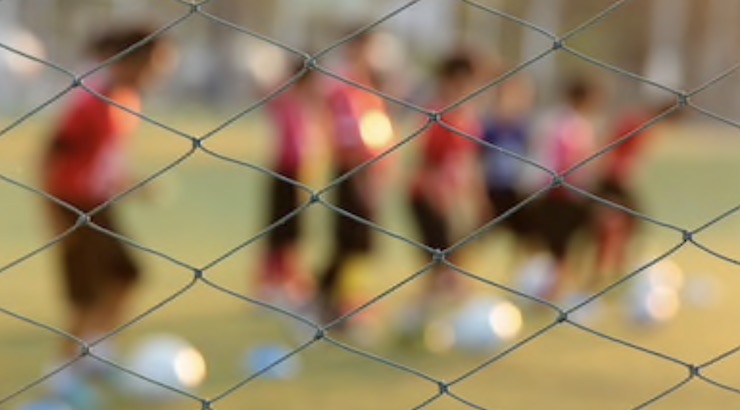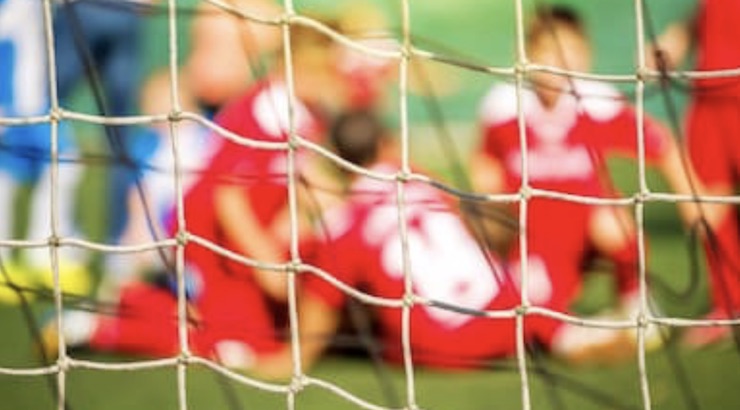Lloyd Biggs on Sometimes You Have To Do What You Have To Do
SoccerToday’s columnist Lloyd Biggs is an outstanding coach whose passion and dedication for player development is well known.
Biggs is a co-founder and the technical director of one.Soccer Schools which trains thousands of high-level youth soccer players all across the USA. Also a youth coach for Real So Cal, Lloyd holds his UEFA ‘A,’ USSF ‘A’ and NSCAA Premier licenses, as well as a degree in sports science.
Youth Soccer News: Does America’s crazy passion for winning a youth soccer game interrupt the focus on developing successful youth soccer players?
Well, if you read the news in youth soccer, you could think that winning is wrong and that all that is important is developing players to advance to the next level. But what does that really look like? And isn’t sports supposed to be a competition? Isn’t there usually a winner and a loser in a game?

What happens when a youth soccer match is important and you want to advance in the standings? What’s wrong with winning, and not necessarily winning playing beautiful soccer?
The Benefits of “Winning Ugly” are often never discussed.
There is no doubt that if asked what kind of style of play people want to play or watch, the majority would reply in, some similar fashion: “An entertaining, passing style of play similar to that of Barcelona or Bayern.” I myself would be in agreement with this.
Sometimes, it is just important to win.
As coaches of youth players, our role must be to develop players that understand and are able to play a style that combines great passing with dribbling, a style that is entertaining to the spectator!
For those that have read my past articles, you will probably have some idea of my philosophy.
“Winning Ugly” is a statement that projects negativity, but should it?
With the above said, now I am focused on what I like to call “winning ugly.”
In short, this means that for a certain game, you as the coach are moving away from your philosophy concerning your tactics and strategies, forming a different strategy, and allowing the team a better chance to win.

I hope you agree that it is true that there will be times in a season when your team is matched up with the opposition that you know is superior in regards to the “tiki-taka” style you like to play.
This article explores and asks the question, is it truly realistic to ask your players to attempt to match your opponents in a certain style, when you are aware that they are simply better than you at this current stage in your team’s development?
The purists of youth coach might argue that this would be a learning curve for the individual and team and continue down the path, attempting to match them, and I do not disagree. However, are you setting your team up to win this game?
Do not misconstrue this question, as I am not stating that winning is everything in youth soccer. That said, it is also understood that some games and competitions are more important than others in terms of the win! Our decision as a coach to set up to attempt to win the game will be based on many different scenarios.
Again, I cannot stress enough the major question here the coach needs to ask is, “how important is this game in regards to the win?”
What do I mean when I say “Win Ugly”?
Winning ugly is moving away from your philosophy to set up your team to nullify the opponent’s strengths and/or exploit their weaknesses. Before I give you my thoughts on this, let me remind you of the 2012 Champions league competition.
Chelsea came out as champions that year beating both FC Barcelona (semifinals) and Bayern Munich in the final on PKs. To anyone watching those games, it was evident to see that Chelsea (although a good team with many ‘superstars’ at the time) set up to “win ugly.”
The win was the most important outcome in those games, not the style of play. Chelsea set up to cancel out the strengths of both Barcelona and Bayern, and their game plan worked, as they were crowned champions!
Teaching the team to “win ugly”
|
The system you decide to play may be based around the style of the other team. Collectively, they may be excellent technically and well versed in the tactical side of the passing game, and very good at keeping possession. Teams that base their philosophy on winning the possession battle do so with the intention of having their opponents cover so much ground pressuring the ball that in time they become fatigued and space and gaps begin to open up to be exploited.
With this in mind, you may decide to play a more counter-attacking style of play in a 1-4-5-1 formation.
You will emphasize to the team that they can give up possession in the opponent’s defending third and drop to a defending line, in order to make the midfield third much more compact.
You will need to make sure that your back four are drilled in recognizing and denying the space in behind, finding the balance between NOT sitting deep and not giving space in behind. Your goalkeeper will also have a role, as they are the heart of the backline.
He or she will be of key importance in the defending shape of the back four (which is the case in any game).
Your training sessions in this situation will be set up to teach the forward to make play predictable and the midfield unit to screen and recognize when pressure is required, and to make sure that everyone knows the game plan.
All players will need to be very tenacious in pressure and 1v1 defending in the midfield zone, ensuring that it is hard to find space and passing lanes in the midfield. They also need to make sure that when opponents are receiving the ball in the midfield that high pressure is applied, giving that player who is receiving the ball NO time and space.
You will need to emphasize the importance of everyone giving everything for the team and demand high levels of intelligent effort from all players.
The times of transition will be important. In those moments when you win possession, you will have to make the most of the counter-attack opportunities you have.
The positioning of your forwards will be the key.
- Are they playing off the shoulder of the center back?
- Can they attack the space in behind, or do they need to show and receive a pass to their feet, holding the ball and allowing for players to join the attack?
- Have you outlined the roles of the players who will look to make runs beyond the forward and those that will support around the forward?
- Set plays may be the difference between winning and losing the game, so have you worked on a corner kick that may give you success?
Have you outlined the roles of the players who will look to make runs beyond the forward and those that will support around the forward? Set plays may be the difference between winning and losing the game, so have you worked on a corner kick that may give you success?
Other examples of winning ugly are setting up your team to exploit certain matchups and/or weaknesses on the opposing team. For example, if you feel like their two center backs lack pace, you might match them with your quickest players and play a more direct game, looking to exploit the space in behind them.
The Benefits of “Winning Ugly” Conclusion
Is moving away from your style of play for a one-off game and giving the team a strategy to win the game a bad thing? In most cases, setting up your team to “win ugly” requires a new system and a new set of roles for your players. Thus, there is actually a lot of benefits here in regards to the development of the players.
The players and team will have to work hard with the coach on the training ground to learn quickly, as in most cases the time you have to teach the new system and individual roles to set up to play a team of superior quality and win ugly is very short. I believe that these types of games are important learning scenarios for players; however, the hard part for the coach is recognizing the time to “win ugly.”
In conclusion, winning ugly can sometimes be misconstrued as a negative in the development of players, and I agree if this is the style of play that the team plays on a permanent basis.
However, it is not negative to work with a young team for a one-off game where the result is meaningful.
Going through the process of winning ugly can be a great learning tool!
Coaches working with youth soccer players should place the development and well-being of the youth player above the outcome of any soccer match while having the ability to create a ‘Winning Mentality’ in the player,” says Lloyd Biggs.
Lloyd Biggs is the current technical director for one.Soccer Schools, which currently coaches over three thousand players across eleven different states. He also coaches for Real So Cal in Southern California. Formerly a youth coach for Charlton FC, Lloyd came to the states eight years ago. Lloyd holds his UEFA ‘A’, USSF ‘A’ and NSCAA Premier licenses, as well as a degree in sports science.








